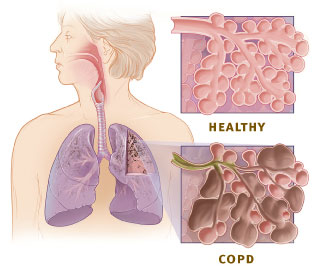Bed sores are pressure point ulcers those may develop on a bed ridden patients. Many patients unable to move or even change their sides on a bed become the victim of pressure sores.
 Bed Sores
Bed Sores
Unconscious, paralytic, aged, fracture of hip or patients having neurological deficit remaining bed ridden are prone for it. These bed sores refuse to heal and go worse from day to day. Pressure sores develop because of less blood supply to the parts of body in constant pressure from bed. Associated diabetes, vascular disease or neurological disease add to the woe.
Bed sores usually develop over shoulder blade, hip bone, gluteal region, heel, knees and shoulder.
Best way tackle it is to prevent it than to treat it.
Some points are to be kept in mind while managing bed ridden patients;
But if develops, all of the above steps must be followed rigorously. A dressing is to be applied over the wound after cleaning with a mild antiseptic lotion.
Diabetic status is to be checked and if present will be controlled. Oral protein supplementation should be continued, if otherwise not contraindicated e.g. patients suffering from hepatic coma.
A short course of antibiotic coverage keeping an eye on anaerobic bacteria is to be added; but a culture and sensitivity test of the pus to choose an antibiotic is better than empirical choice.
Vitamin B, C and D supplement can be given to assist in healing. Sometimes blood and blood components may be required if there is anemia.
The gold standard is “Prevention is better than cure”.
Unconscious, paralytic, aged, fracture of hip or patients having neurological deficit remaining bed ridden are prone for it. These bed sores refuse to heal and go worse from day to day. Pressure sores develop because of less blood supply to the parts of body in constant pressure from bed. Associated diabetes, vascular disease or neurological disease add to the woe.
Bed sores usually develop over shoulder blade, hip bone, gluteal region, heel, knees and shoulder.
Best way tackle it is to prevent it than to treat it.
Some points are to be kept in mind while managing bed ridden patients;
- Bed should be soft and without any folds.
- A water bed is always better if can be affordable.
- Bed sheets should not be of rough type and there should not be any creases.
- Change of sides of patient at frequent intervals.
- The bed should not be soiled with water, urine or feces
- The patients should be cleaned daily and body sprayed with talc powder. Surgical spirit can be applied all over body; especially over the pressure points like; hip, gluteal region, shoulder blades, heels and back etc. two to three times a week.
But if develops, all of the above steps must be followed rigorously. A dressing is to be applied over the wound after cleaning with a mild antiseptic lotion.
Diabetic status is to be checked and if present will be controlled. Oral protein supplementation should be continued, if otherwise not contraindicated e.g. patients suffering from hepatic coma.
A short course of antibiotic coverage keeping an eye on anaerobic bacteria is to be added; but a culture and sensitivity test of the pus to choose an antibiotic is better than empirical choice.
Vitamin B, C and D supplement can be given to assist in healing. Sometimes blood and blood components may be required if there is anemia.
The gold standard is “Prevention is better than cure”.
...
Click here to Subscribe news feed from "Clinicianonnet; so that you do not miss out anything that can be valuable to you !!
...





